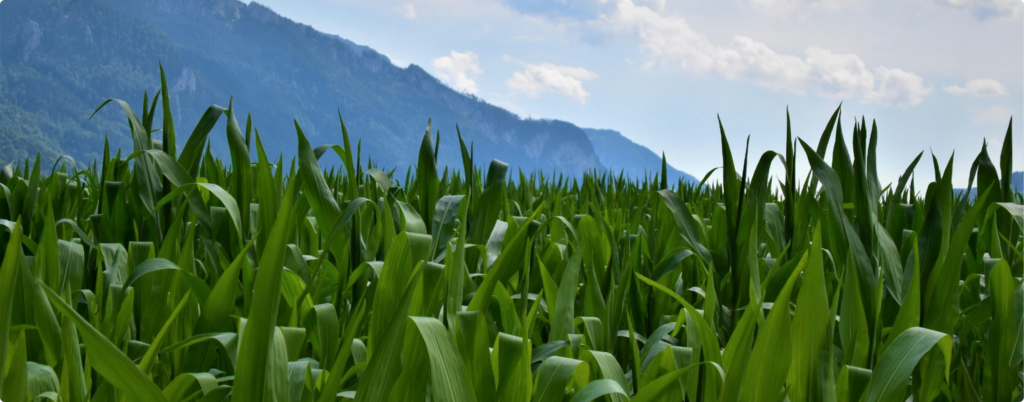Research Insights
Vision for the Future
We asked nonprofit leaders from the food system transformation movement to describe a food system that benefits the common good. Here was their collective vision.
Synthesis: A Vision of a Food System that Supports the Common Good
For the benefit of animals
Few (if any) animals raised for food, and no animals raised industrially. Remaining animals raised with highest possible animal welfare standards.
For the benefit of people
Jobs that are dignified, safe, and provide a living wage at all stages of food system work. Safe, nutritious, affordable food widely accessible. Wage gaps between CEOs and farmers, farm owners, and farmworkers closed
For the benefit of the environment
Crops raised primarily to feed people rather than animals. Input-heavy monocultures deemphasized to favor carbon-negative food production with ecologically protective and restorative agricultural methods and transportation.
For the food system to support the common good means giving everyone (including animals) opportunities to thrive. Thriving includes personal health, the health of the environment and community, and a safe and protected workplace. The common good also has to mean continuing
to fight racial and economic injustices.
Alexandra Bookis, then Senior Manager of U.S. Government Affairs, Farm Sanctuary
Joe Maxwell, President, Farm Action Fund
We recognize that many food system benefits to the common good could be maximized by fully decommodifying food. However, we also believe that the alt protein industry can contribute to many worthwhile and meaningful co-benefits while working within the current profit-based food system.
By disrupting the production and consumption of animal-based foods, alt proteins create default benefits including reducing or eliminating farmed-animal suffering, reducing food-production-related generation of the greenhouse gases that drive global climate change, and reducing the resource intensity of food production. Plant-based and plant-centric diets are also associated with a lower societal burden of some diet-related chronic diseases. In addition to these default benefits, other positive co-benefits from alt proteins are possible but are not ensured by default development of the alt protein industry.
In the context of the many default benefits and possible co-benefits alt proteins can provide, three key points of tension emerge between the alt protein industry and inclusive food system transformation for the benefit of the common good.
Agricultural Practices
Industrial food production uses a factory-like approach to maximize yields and minimize costs, often leading to significant environmental and social harm. While non-industrial farming may involve lower yields and more labor, plant agriculture generally requires less water and land than animal agriculture, while producing fewer emissions and pollutants. However, alternative proteins can still rely on harmful industrial farming practices, which may undermine their environmental and social benefits.
Corporate Concentration and Consolidation
The US food system is dominated by large corporations with significant market and political power. Alternative proteins often exclude animal-based ingredients but may still operate within the same industrial structures, limiting their potential for broader social and environmental improvements.
Social Justice Concerns
Although alternative proteins offer environmental and animal welfare benefits, they may perpetuate labor exploitation without specific efforts to ensure workforce justice. Historical patterns of inequity in the US food system must be addressed for alternative proteins to truly benefit all stakeholders.
Alt proteins exist within a legacy of global food system inequity
Especially outside the US, plant-based alt protein innovation is—fairly or unfairly—conceptually connected to the negative impacts of globalization, including land grabs and environmental harm. If alt proteins rely on industrial farming or patented technologies, they may deepen this association, complicating efforts to replace animal agriculture.
Social and economic benefits from alt proteins may not be uniform
Replacing animal agriculture may bring long-term benefits but could also create short-term disruptions and uneven impacts. New jobs may not align with those lost, and benefits have primarily favored privileged consumers rather than workers throughout the alt protein supply chain.


In our research, there were certain societal benefits that nonprofit leaders and industry analysts felt the industry is best positioned to provide.
Conversely, nonprofit leaders and industry analysts felt there were many other ways that alt proteins were not yet well positioned to created societal benefits.
The alt protein industry is least well aligned with the common good on these attributes (N = 19)
Explore Insights from the Report
Connect with Us: Fill out the Form
Have questions about this research?
Use this form to get in touch